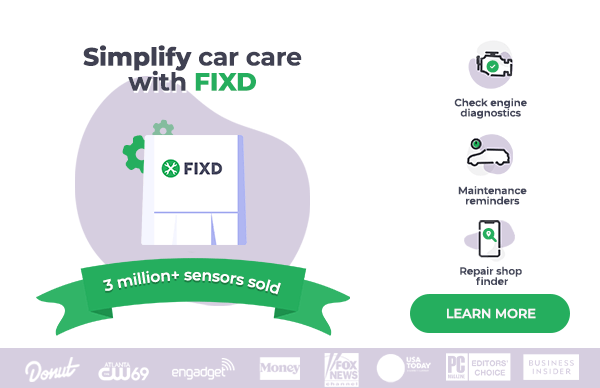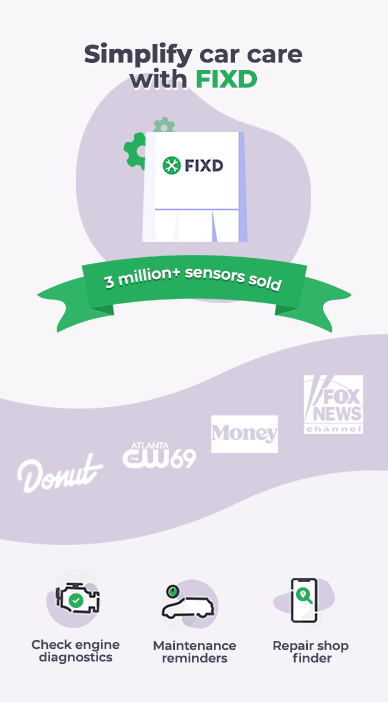Test driving a used car before sealing the deal is a crucial part of the car-buying journey. It’s the best way to confirm that you like the car and to identify potential problems. But there’s more to a test drive than a few minutes behind the wheel and kicking the tires.
We’ve outlined a multi-step plan to maximize the time spent with a car you’re thinking about buying. Following this detailed checklist can help you avoid getting ripped off, not spending more than you should, and steering clear of a questionable car.
Pre-Drive Homework

A bit of research before the test drive goes a long way in preparing for a purchase decision.
Investigate the Vehicle
Before getting behind the wheel of a car, find out all you can about it ahead of time. This avoids wasting time on an unfit vehicle and makes you better prepared to deal with a seller.
Get the Vehicle Identification Number
A car’s vehicle identification number (VIN) is the gateway to its origins. This essential detail will help uncover ownership info, repair facts, and validate what the seller is promising. Most dealers will display the VIN as part of an online listing (although some may request you contact them for this information). A private seller should also willingly supply this information. Run, don’t walk away from any seller unwilling to provide the VIN; they’re likely hiding something.
Review the vehicle history report
Many dealers will provide a vehicle history report at no charge; it’s a good sign they employ upfront business practices. But chances are, you’ll need to pay for this information if you’re dealing with a private seller. You can use services like our Incident History feature in the FIXD app to check this or services like CARFAX and AutoCheck.
At a minimum, the vehicle history report should show the number of owners, mileage, accident or theft notifications, title status (showing if a car has been salvaged or flooded), and the states where the vehicle has been registered. Depending on the source, you may also learn about service history and other pertinent details.
Keep an eye out for oddities in the reports. For example, a ten-year-old car showing only new history information could indicate VIN cloning. It’s a more recent scam where the VIN from a problem-free car is duplicated onto a troubled car to hide an accident or salvaged title.
Perform an online search
A simple car verification hack is to enter the VIN into Google and see what comes up. You might find an old auction listing or dealer for-sale post that can uncover a treasure trove of information about the car. But, always double-check the VIN because online searches sometimes show similar but not exact results.
Ask the seller questions
With the vehicle’s background information in hand, it’s time to put on your Sherlock Holmes hat and become a car detective. You’ll want to ask the seller questions to help validate (or not) the information you’ve uncovered. The point here is not to trip up the seller but to catch any inconsistencies resulting from misinformation, not deception.
For a dealer, ask questions like:
- How long has the car been in inventory?
- Where did you get the car from?
- Are you aware of any problems?
- Was any service work performed before it was put up for sale?
- Has the vehicle been in an accident?
You’ll have slightly different questions for a private seller:
- Why are you selling the car?
- How long have you owned the car?
- Where did you buy it from?
- Were there any previous owners?
- Has the vehicle been in an accident?
- What was the car primarily used for?
- When was the last time it was serviced, and for what?
- Where do you take it for service?
- Do you have repair records?
- Are there any trouble areas?
- Do you have the title?
Take note of the answers and see how it compares to your research. If the seller says they only used the car for local errands but racked up 40,000 miles in two years, then you know something isn’t right.
Run the Numbers
Before spending any time driving a car, you’ll want to know that the purchase makes financial sense. Here are a few steps to consider.
Search the market value
Finding the value of a vehicle takes seconds in the FIXD Vehicle Value feature in our app or sites like KBB and Edmunds. Just enter the VIN to see if the asking price is within reason. It also can’t hurt to look at marketplace sites like Autotrader and CarGurus to see what similar vehicles are selling for.
Obtain an insurance quote
Call your insurance company with the VIN and ask for a quote to see what coverage for the car of interest will cost to protect. You don’t want to discover a significant premium increase after you can’t change your mind.
Get financing pre-approval
It’s also a good idea to find out loan costs beforehand if you’ll be borrowing to buy a new car. Major lenders like Capital One and Chase have pre-qualification programs that don’t impact your credit score and provide a realistic estimate for lending amount limits and interest rates.
Determine ownership costs
In addition to insurance and borrowing costs, put together a rough idea of other car ownership expenses, like gas, parking, maintenance, and repairs. Add all the numbers to see if buying this car works within your budget. The whole point of this exercise is not to waste your time on a test drive if you can’t afford the car.
Confirm the Details
Here’s the final part of your homework, which includes a paperwork review and recall check.
Inspect the title
Suspect title documents are more of an issue when dealing with private sellers than dealers. In particular, you’ll want to ensure the title is in the seller’s name. Ask to see the title and the seller’s identification to confirm things match. If you get the “I’m selling the car for my uncle” excuse, walk away. At best, the seller didn’t want to register the car in their name to save taxes. At worst, you could be dealing with a stolen vehicle.
Dealers aren’t immune to questionable title practices, but these actions tend to appear in a vehicle history report. For instance, a damaged or salvaged vehicle may get registered in a state that doesn’t record this information on the title. The car then gets registered later in a different state with an apparent clean bill of health. This technique is called title washing and is illegal.
Confirm lien status
A lien is a legal hold placed on a property (like a car) by a lender until the debt is paid off. You’ll need to confirm with a private seller that any lien has been paid off. This can be verified by a “no lien” designation on the title or a lien release letter. Most state motor vehicle agencies can confirm if there’s a lien on a car in case you want to double-check what the seller is telling you. You’ll be unable to register a vehicle in your name if there’s a lien, so confirming the lien status is vital.
Review repair records
When possible, review a car’s repair records to see its maintenance and service history. A private seller with detailed documentation is a good sign the vehicle was well cared for. But don’t be surprised if this information isn’t available when buying through a business; most dealers don’t bother with repair records. However, one exception is a new car dealer selling a used car from the same brand. The dealer can pull the service history of any work performed by another dealer of the same brand (note that services done by an independent shop won’t be in these records).
Check for recalls
You’ll want to know if a car under consideration has any open recalls and confirm that any past recall has been corrected. Head to the National Highway Traffic Safety Administration (NHTSA) website and enter the VIN for a complete report. Don’t stress too much if the car has a recall; these are common occurrences in modern automobiles. However, having the seller correct the problem before signing any paperwork is best. Recall repairs are free, so let someone else deal with the hassle.
Pre-Drive Inspection

With the detective work and vehicle history review out of the way, you’re almost ready for the test drive. But before hitting the road, give the car a thorough lookover, inside and out.
What to Bring on a Used Car Test Drive
➔ Notepad/Note Taking App: To capture thoughts during and after the test drive.
➔ Voice Recording App: For recording comments during the test drive.
➔ Paper Towels: For checking the oil and other fluids.
➔ Gloves: To protect your hands while inspecting the engine compartment.
➔ FIXD App with Sensor/OBD II Code Reader: To scan for diagnostic trouble codes.
➔ A Penny: To record tire tread depth with the FIXD app (a tire tread-depth gauge is an alternative).
➔ Vehicle History Report: To verify the car’s details with the seller.
Explore the Exterior
Examine the body and windows
During daylight hours, walk around the car to look for scratches, dents, rust, faded paint, and other body imperfections. Plus, you’ll want to:
- Test that all the lights and turn signals work correctly.
- Open and close all the doors as well as the hood and trunk/hatch (plus the sunroof and fuel filler door)
- Compare that the body panel gaps are straight and even (and consistent with other panels).
- Check the tires
Tires are often overlooked when checking out a car, but failing to do so can be costly later on. Inspect for:
- Matching tires (brand and size)
- Tires no more than ten years old (check the age)
- Even tread wear across all four tires
- Sidewalls free of damage
If any of these tire check steps aren’t successful, you’re dealing with worn-out tires, a car that needs suspension repairs, or both.
The FIXD app has a handy feature that walks you through testing and capturing tire tread depth with a penny. Tires with a tread height of 2/32″ or less must be replaced.
Test the suspension
With the car parked on a level surface, check that the body’s ride height is even all around—any sagging or unevenness is a sign of a problem. Push down on each corner of the car to see how the suspension responds. A car that bounces back once has a suspension in good condition, but multiple bounces are another indicator of suspension issues.
Investigate the Interior
Confirm the odometer information
Glance at the odometer to confirm that the mileage matches what the seller told you and is consistent with the vehicle history report.
Test every switch, control, and handle
Check that every power window and light switch, radio knob, door handle, and every control that manages something actually works. Take nothing for granted. The older the car is, the more likely you’ll find problems in this area. This is a good time to ask the seller to review the car’s equipment with you.
Inspect the upholstery and carpet
Look at the upholstery for stains and tears (remember the back seat) and run your hand along the carpet to feel for moisture (a bad sign).
Compare wear to mileage
Cars offer usage clues that go beyond the odometer and history reports. In particular, look at the wear (or lack of) on the pedals and steering to see if things are consistent with the reported mileage. A vehicle with 30,000 miles shouldn’t have worn-down pedals or a steering wheel that’s seen better days. Similarly, knobs and armrests on a newer car should be free of wear patterns.
Smell for problems
When first entering the car, take a deep breath to detect a musty or mildew smell, which can indicate a moisture or mold problem in the cabin. And be on the alert if you arrive to check out the car and find the seller has already rolled down the windows.
Test Drive Assessment

With all the preparation out of the way, it’s time for the rubber to meet the road. However, there’s more to a test drive than a five-minute spin around the block. Here’s what makes a test drive meaningful and effective.
Plan a realistic route
Think about how and where you usually drive; your test drive route should reflect this and more. In addition to local 30-40 mph streets, you’ll want to include highways to test performance. If possible, try roads with inclines to see how the car responds under stress. Winding two-lane routes are an ideal way to assess the handling and suspension. Be sure your test drive includes parking practice to see how the car operates in tight quarters.
Bring an observer
Car buying can be exciting, emotional, and overwhelming. So bring someone along to help you through the process. While their opinions may be insightful, assign them to take notes about your observations and comments (because that’s really what matters).
This way, you focus on driving, experiencing the vehicle, and not worrying about remembering things. Besides, bringing a friend along is a smart move when meeting a private seller. Going solo? Use a voice recorder app to speak your thoughts while driving.
Look under the hood
You don’t need to be a mechanic to explore the engine bay. Mainly, you’ll want to check the fluid levels. If the seller can’t keep up with this, who knows what else has been ignored? Review the owner’s manual to confirm the location of the various fluid access spots and how to check these fluids.
Oil: Pull the dipstick to see that the engine oil is full. The oil color should be dark yellow or light brown, not black. Sniff the dipstick for a burnt aroma (which is bad).
Coolant: Locate that coolant reservoir to confirm it’s full. This liquid should be a bright shade of green, blue, pink, or other noticeable colors, and not brown or black.
Brake fluid: Like coolant, brake fluid comes in a rainbow of colors, but you’ll want to be alert for brown or black liquid. Opening the brake fluid reservoir will reveal the color and the level.
Transmission Fluid: Not every car has easy access to the transmission fluid, but take advantage of the opportunity if available. The dipstick should reveal sufficient pink, red, or light brown liquid. Dark brown or black transmission fluid is old and a sign of poor maintenance.
Position the seat and mirrors
Visibility and comfort are top priorities for safe driving. Before setting out, ensure the driver’s seat and mirrors are positioned correctly. You’ll want to maximize outward visibility from the driver’s seat while minimizing blind spots. If you can’t get positioned how you like (it happens), then maybe this isn’t the car to buy.
Start the engine
If possible, ask the seller not to start the car until you get there, as a cold engine start is more revealing. Be observant of:
- How quickly the car starts
- Unusual noise from under the hood
- Smoke from the engine or tailpipe
- A burning smell coming from the engine or ventilation system
Ensuring the car is not in gear, and the parking brake is set, get out of the car and open the hood for even closer observations. This is a good time to have your friend step on the accelerator. Do you notice anything out of the ordinary?
FIXD Tip: A tapping sound from the engine isn’t unusual in an older car. This can indicate something as basic as low oil, a broken spark plug wire, or significant internal engine problems. Have this looked at by a mechanic if you want to buy the car.
Check the codes
All cars built since 1996 have the on-board diagnostic system (OBD II or OBD2) to identify mechanical and electronic problems through numbered diagnostic trouble codes (DTCs). The OBD II port is usually located underneath the steering wheel and is a powerful tool for a used car shopper. Take advantage of it.
You can buy an inexpensive DTC reader, but you’ll have to decipher the thousands of possible codes. For example, P0420 is for the catalytic converter, while P0300 refers to engine misfiring. The FIXD app includes a sensor that plugs into the OBD II port and automatically translates DTC information into plain English.
Installing the FIXD Sensor only requires a few minutes and is easily removed, which makes it ideal for test drive use. Learn how the FIXD app can help car shoppers save money and avoid lemons. Click here to get FIXD for only $19.99 (regular price $59)!
A few key points:
DTC information can be deleted by an unscrupulous seller, so adding the FIXD app before a test drive can uncover hidden problems.
Ask permission before installing the app. If the seller balks, then maybe they’re hiding something.
Remember to remove the FIXD sensor after the test drive (it takes a few seconds).
Get in gear
You’re ready to begin the test drive, so put the car in gear and head off. Be alert for any unusual sounds or hesitation when engaging the shifter.
Enjoy the silence
Keep the radio off during the test drive to get a better sense of the sounds that should and shouldn’t be there. Test the audio system at the end.
Stomp the gas
Pick a spot where you can safely hit the gas; a highway onramp is perfect. This provides an opportunity to check the acceleration, look for any hesitation, and see how the engine and car perform under heavier use.
Hit the brakes
What goes must stop. So, you’ll want to pick a safe spot to sharply apply the brakes (advise others in the car about your intentions beforehand). Does the car come to a halt in a straight line and with confidence? Or does it pull to one side and make you nervous?
Look, listen, and feel
There are two purposes to a test drive: determining that you like the car and identifying any problems. Use all your senses to achieve these goals.
- Look for blind spots that might make driving annoying or hazardous.
- Listen for any unusual sounds, especially while accelerating, cornering, steering, and braking.
- Feel for any shaking or vibrations (indications of something not working correctly).
- Smell for signs of trouble, including burning aroma and gas fumes.
Summarize your experience
Whether you’re speaking to your note-taking friend or into a smartphone app, spout off with impressions immediately after the test drive is over. Otherwise, you’re likely to forget some critical thoughts.
Once you’ve gotten everything off your chest, organize the results into a pros and cons list. Understand that no used car is perfect. Is anything a deal breaker? From there, decide if the advantages outweigh the disadvantages (or vice-versa).
Post-Drive Steps

Finish the test drive by determining what’s next.
Consider a pre-purchase inspection
Hiring a mechanic for a pre-purchase inspection is your smartest move before buying a used car. It’s $150 to $200 well-spent and far cheaper than getting stuck with a hidden and expensive repair.
The best choice is taking the prospective car to a mechanic with a lift so an undercarriage inspection can be part of the process. But you can hire a mobile mechanic who’ll come to you (without a lift).
Be sure to share your test drive notes with the mechanic, so they can zero in on any potential issues.
Take advantage of defects
Not every problem or imperfection that gets uncovered is a deal killer. Use less-severe defects to negotiate a better price.
Be ready to walk away
It can be hard to walk away from a car under consideration after investing time and emotion. Yet, sometimes it’s necessary if you uncover defects or are dealing with an inflexible seller. The disappointment of moving on will pass, unlike the regrets you’ll get from buying the wrong car.

Dave Goldberg is an automotive journalist and lifelong car fanatic. He writes for numerous enthusiast and business outlets and is an ongoing contributor to HotCars.com, one of the most popular car culture websites. When he’s not writing or driving, Dave is either under a hood or asleep. His credentials include a BA in Journalism from The George Washington University.














